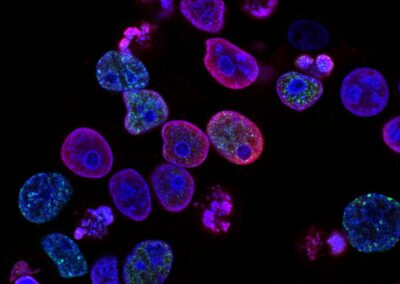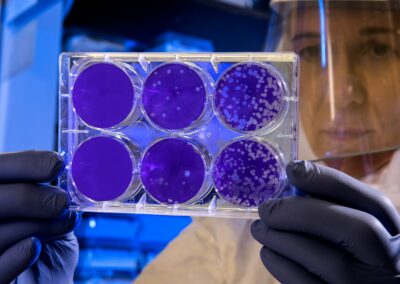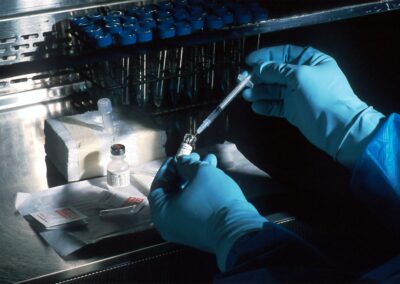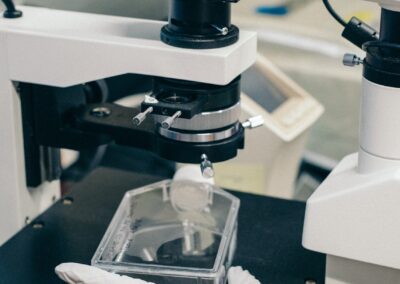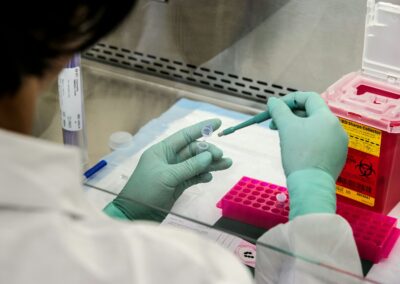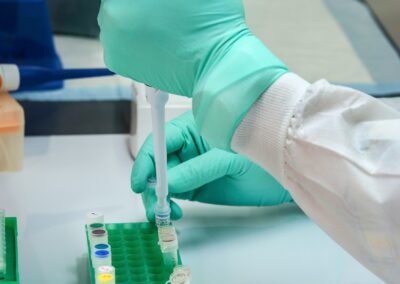Navigating Ethical Complexities in Human Germline Editing in Saudi Arabia and the UAE
The ethical concerns of CRISPR germline editing are multifaceted, encompassing a range of issues from safety and consent to social justice and long-term impacts. CRISPR technology, with its potential to make precise changes to human DNA, offers unprecedented possibilities for eradicating genetic disorders and enhancing human capabilities. However, its application to human germline editing, which involves making changes that can be inherited by future generations, raises significant ethical questions. In Saudi Arabia and the UAE, where scientific innovation is actively pursued, addressing these ethical concerns is paramount to ensure responsible and sustainable use of CRISPR technology.
One of the primary ethical concerns is the potential for unintended consequences. Even with CRISPR’s precision, off-target effects and unforeseen genetic interactions can occur, leading to unintended mutations. These changes could have unknown health implications not only for the individual but also for future generations. In Riyadh and Dubai, regulatory bodies are emphasizing the need for comprehensive preclinical testing and long-term studies to better understand and mitigate these risks. Ethical oversight committees play a crucial role in evaluating the safety protocols and monitoring ongoing research to ensure that human germline editing is conducted with the highest standards of care.
Informed consent is another significant ethical issue. In the context of germline editing, obtaining true informed consent is challenging because the individuals who will be directly affected by the genetic modifications—the future generations—cannot consent. This raises questions about the moral authority of current generations to make irreversible genetic changes on behalf of others. In the UAE and Saudi Arabia, ethical guidelines are being developed to address these concerns, emphasizing the importance of thorough ethical review and public engagement. Ensuring that decisions are made transparently and inclusively helps to uphold the ethical integrity of germline editing practices.
Addressing Social Justice and Equity in Germline Editing
Social justice and equity are critical considerations in the ethical discourse surrounding CRISPR germline editing. There is a concern that the technology could exacerbate existing social inequalities if access to genetic enhancements is limited to wealthy individuals or countries. This could lead to a scenario where socio-economic disparities are reinforced, creating a genetic divide. In Saudi Arabia and the UAE, where efforts are underway to promote social equity, regulatory frameworks are being designed to ensure that the benefits of germline editing are accessible to all segments of society. Public funding and international collaboration are essential strategies to democratize access to these advanced technologies.
The potential for genetic enhancement, as opposed to therapeutic applications, also raises ethical questions about fairness and the naturalness of human traits. Enhancements could include modifications to increase intelligence, physical abilities, or other desirable traits, leading to ethical concerns about eugenics and the societal implications of creating “designer babies.” In Riyadh and Dubai, ethical committees are tasked with delineating clear boundaries between therapeutic and enhancement applications of germline editing. By establishing strict regulations and promoting ethical discourse, these committees help ensure that CRISPR technology is used to address genuine health needs rather than for enhancement purposes that could disrupt social norms and values.
Addressing these ethical concerns requires a comprehensive approach that includes robust regulatory oversight, continuous ethical review, and proactive public engagement. In the UAE and Saudi Arabia, regulatory bodies such as the Emirates Authority for Standardization and Metrology (ESMA) and the Saudi Food and Drug Authority (SFDA) are collaborating with international organizations to develop and implement ethical guidelines for germline editing. These guidelines prioritize safety, transparency, and equity, ensuring that the technology is used responsibly and ethically. Public consultations and educational initiatives are also crucial for fostering an informed and engaged citizenry that can participate in the ethical decision-making process.
#CRISPR #GeneEditing #EthicsInBiotechnology #HumanGermlineEditing #SaudiArabia #UAE #Riyadh #Dubai #AI #Blockchain #ExecutiveCoaching #ManagementConsulting #BusinessSuccess #Leadership #ProjectManagement


